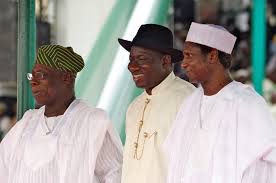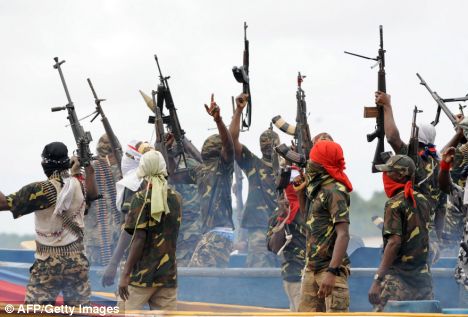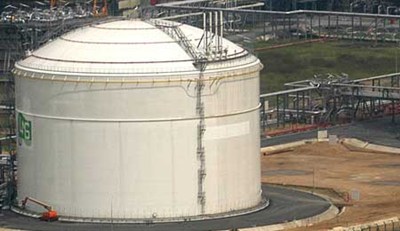Former President Olusegun Obasanjo has revisited the issue of the privatisation of port Harcourt and Kaduna refineries, saying that the cancellation of their sale by late President Umaru Musa Yar’Adua was ill-advised.
wrong for cancelling the sale of the Kaduna and Port Harcourt refineries to a
A consortium of investors led by billionnaire businessman Aliko Dangote had paid the purchase price for 51 per cent equity stake in the refineries in the dying days of Obasanjo administration,bythe deal was cancelled by late Yar’Adua.
Incidentally, Yar’Adua was Obasanjo’s annointed successor.
Obasanjo, who spoke in an interview with Channels TV on Wednesday, berated late Yar’Adua’s administration for sacrificing public interest for pressure by some people by cancelling the said contract.
Obasanjo dwelt on some of the claims he made in his controversial three-volume autobiography, My Watch, spoke about his efforts to get people to invest in the oil sector and how the country eventually secured buyers for two of its four refineries.
He said, “Eventually Aliko Dangote led a group that paid $750m for the privatisation of two of the refineries – 51 per cent privatisation – and my successor (Yar’Adua) came (in), he turned it down. In fact, he paid back the money because they (investors) had paid the money. And I went to him; I said ‘look, do you know…? And he said well, he did it because of pressure. I said ‘pressure?’, so to you what matters is pressure, not what is in the best interest of Nigerians. I said, but you know it will not work. Then I said in 10 years, if you continue, you would have spent two times the amount that these people had paid and it still would not work. And that is what happened.
“Today those two refineries, you can never make them work. And if we are going to sell them, we would be lucky to get $250m out of them because they have become a huge scrap. Now, why shouldn’t I explain that (in my book)?”
Obasanjo would not admit to leaving out parts that painted him in a bad light in the book, saying he cared less what critics said about him or his book.
the former president is of the view that some criticisms against him were either ill-conceived, prejudgemental or born out of ignorance.
He picked out Mr. Tunji Braithwaite; and the Publicity Secretary of the Afenifere, Yinka Odumakin, as examples of persons who criticised him without doing enough work to know about him and the works criticised.
Odumakin had written a rejoinder to his book. The rejoinder is titled, Watch the Watcher.
According to Obasanjo, “When I wrote a book, Braithwaite, it was My Command, he condemned my writing the book and they asked, have you read the book? He said ‘No. Once it is written by Obasanjo, it cannot be a good book. Now what do you say to that? “People have invariably made up their minds (on) what they would do and what they would say. Why should that worry me? Why should I allow your own opinion, which you have formed, advertently or inadvertently, and wrongly to worry me? Your opinion which you have formed because you are being paid to write to castigate a book that you virtually didn’t read. So, why should I allow that to worry me?
“If I would read all the criticisms people write about me, most of which are not true, then I would not have time to do anything really useful and good for humanity. If I can be sent to jail wrongly, then anybody can do anything to me wrongly and I could jolly well have been killed wrongly.” Obasanjo again took a swipe at Yar’Adua’s successor, ex-President Goodluck Jonathan, for rehabilitating the railway system with locomotive engines. He said, “Where I made (a) mistake, which I know is (a) mistake, I own up. But the point is this, in government we need to have all the facts that led to a person making a particular decision before your criticism can be right. Take the railway for instance, for what reason should anybody in his right senses in Nigeria of today believe that rehabilitating the railway system, which was completed in 1903 to carry three million tonnes of goods, is what we need today?
“There is no earthly reason by which a rehabilitated railway system of Nigeria today can serve our purpose, there is no way.”
He said that before he left office as President, his administration had concluded the design of a modern rail system to cost $8.3bn that would make a trip of about 120 kilometres in 45 minutes. He said, “Part of the design criteria is 150km per hour. You will leave Lagos and in 45 minutes you will be in Ibadan, and you don’t understand that if we are going to achieve Vision 20 2020, we will need a first class land, water and air transportation.
“Your land transportation can only be railway and road and if you don’t think this way and don’t think one generation ahead, how can you make progress? Will you say that a man who wants to rehabilitate the Nigerian railway system of 1903 is one generation ahead (in his thinking)?”














